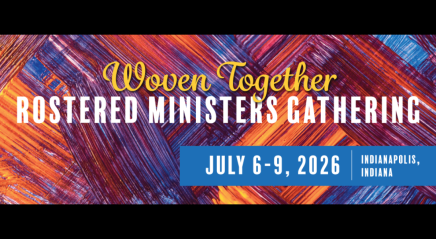In honor of Black History Month, ELCA Racial Justice Ministries invited Seminarian Clair Minson to share some thoughts about this topic with our readers.
What began as “Negro History Week” in 1926—created by historian Carter G. Woodson out of his concern that young African Americans lacked an education about their own heritage and ancestors—has since expanded to what we now know and observe as “Black History Month.” Woodson, a lifelong educator, understood the power of knowing one’s history and one’s ancestral heritage. Knowing that you are part of a long legacy of people who have the capacity to create whole societies can ground you in the belief that you too can do anything. Not knowing this history can become a seeding ground for internalized oppression.
As Nikole Hannah-Jones writes in her book The 1619 Project: A New Origin Story, “The vision of the past I absorbed from school textbooks, television and the local history museum depicted a world, perhaps a wishful one, where Black people did not really exist. This history rendered Black Americans, Black people on all the earth, inconsequential at best, invisible at worst” (1619 Project: A New Origin Story; Random House, 2021). I suspect that this erasure of Black his- and her-story is what Woodson was confronting through the development of Negro History Week.
As people of faith, steeped in the tradition of remembering and honoring our ancestors, we know the power of hearing, repeating and internalizing the miraculous stories of Moses, Joshua, Mary and Paul. Despite thousands of years of separation, we rely on these stories to help us cling to our faith and to a God who can at times feel very distant, despite always being with us. Understanding this, we perhaps also understand that recalling the stories of our Black ancestors is equally as powerful and necessary.
In preparation for this blog, I sat with the question: “What does Black History Month mean to me?” and after some time an answer surfaced. To me, Black History Month is not just an obligatory nod to African American people; it’s a reminder of the strength and resilience of a people who, despite being erased from history and relegated to the margins of society, continue to contribute to the flourishing of our society. It’s a reminder of who we are and whose we are. It’s a reminder from “whence we came” and a vision for where we can go. It’s a clarion call to those who feel lost and need a reminder that their stories and their lives matter.
Black History Month is an opportunity for us as Christians to live into our call to be countercultural and share histories that many in society want to censure. It is an opportunity to live into the commitments we have made as a denomination to honor, protect and value the lives of people of African descent. I ask you, as people of faith, steeped in the tradition of remembering and honoring our ancestors, the same question: What does Black History Month mean to you?
This blog was originally published here.










